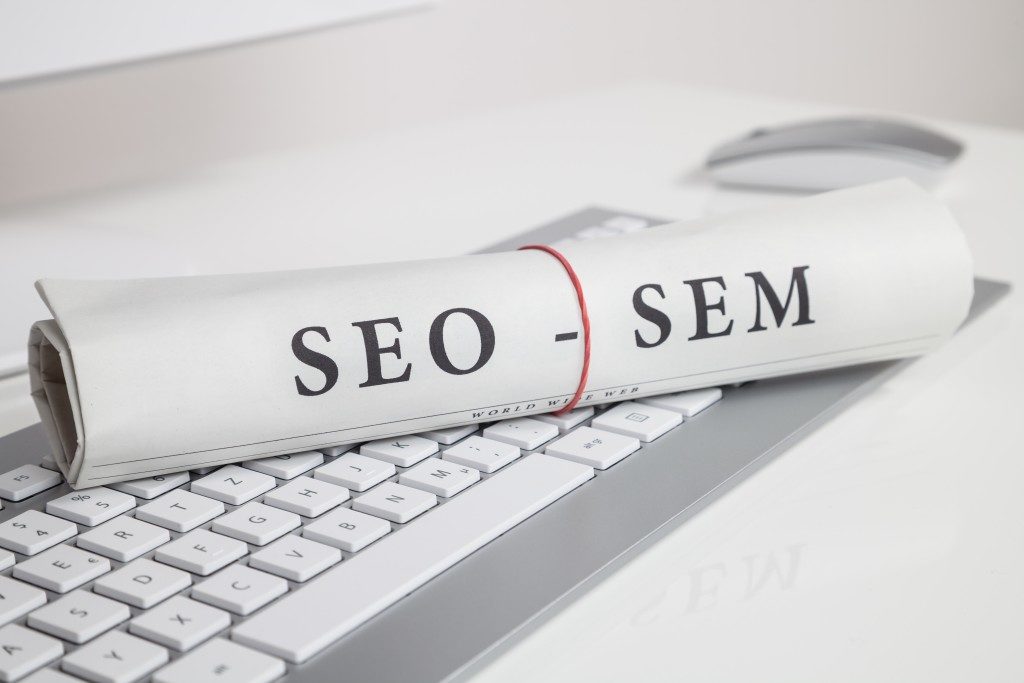Today’s digital market requires innovative approaches. SEO and PPC marketing are two of the best ways to beat your competitors and improve sales. Knowing how each method works helps you choose the better strategy for your business.
What is SEO?
The goal of search engine optimisation is to put your business on top of the Search Engine Results Page (SERP). High-ranking websites attract more organic clicks which in turn, lead to better conversions.
Search engines like Google, Yahoo, and Bing use their own algorithm to rank webpages and ensure that users get the best possible results. They usually consider factors such as content, headers, website design, and meta data. These are on-page elements that can be controlled by the publisher or marketer.
Search engines prefer pages that provide visitors with fresh and useful content. Consider publishing blogs, videos, and images on a regular basis to up your rankings and keep your audience engaged.
Keywords play a major role in SEO. All your content, meta data, Alt tags, and URLs should contain terms that match your target market’s typical search queries. The more specific your keywords are, the greater your chances of reaching the right audience.
Apart from content, search engines are also critical of user experience. Websites with simple navigation, clean designs, and proper HTML and CSS validation are rewarded higher rankings.
Today’s website development companies implement internal linking strategies to boost SEO. Having all your pages seamlessly interlinked with each other allows Google to scan and assess your website quickly. Internal links also establish a hierarchy, allowing you to give key pages and posts more link value than minor pages.
What is PPC marketing?
PPC, or pay-per-click marketing, is all about getting instant results through paid ads. As the name suggests, marketers pay a fee each time a user clicks on their ads.
The main advantage of using PPC marketing is that it lets relevant visitors come to your website. Paid ads even allow you to laser target key demographics including age, location, and income. It also puts you right on top of the SERP, enabling you to overtake your competitors.
Another great thing about PPC ads is you get to control your ad spend and monitor where every penny goes. Effective PPC campaigns use smart bidding strategies to secure better keywords and outrank competitors. The higher your bid, the better your placement. On the other hand, bidding too little can lower your rank and reduce your click rate.
Which generates a higher return?

If you’re aiming for long-term traffic, SEO is your best bet. It’s an effective way to cement your online presence and showcase your home page. SEO is also more cost-efficient in the long run, although it can take six to twelve months for results to appear.
PPC, on the other hand, is a short-term alternative to gaining more traffic. It’s a great way to promote new products and launch your brand. Startups, for instance, should invest in PPC to build their customer base quickly. Unfortunately, higher traffic and more competitive keywords translate to bigger costs.
Use SEO to promote major web pages (home page, ‘about us,’ category pages) and PPC for specific landing pages (product pages, ‘contact us’). This way, you get the best possible outcomes without wasting time or breaking the bank.

